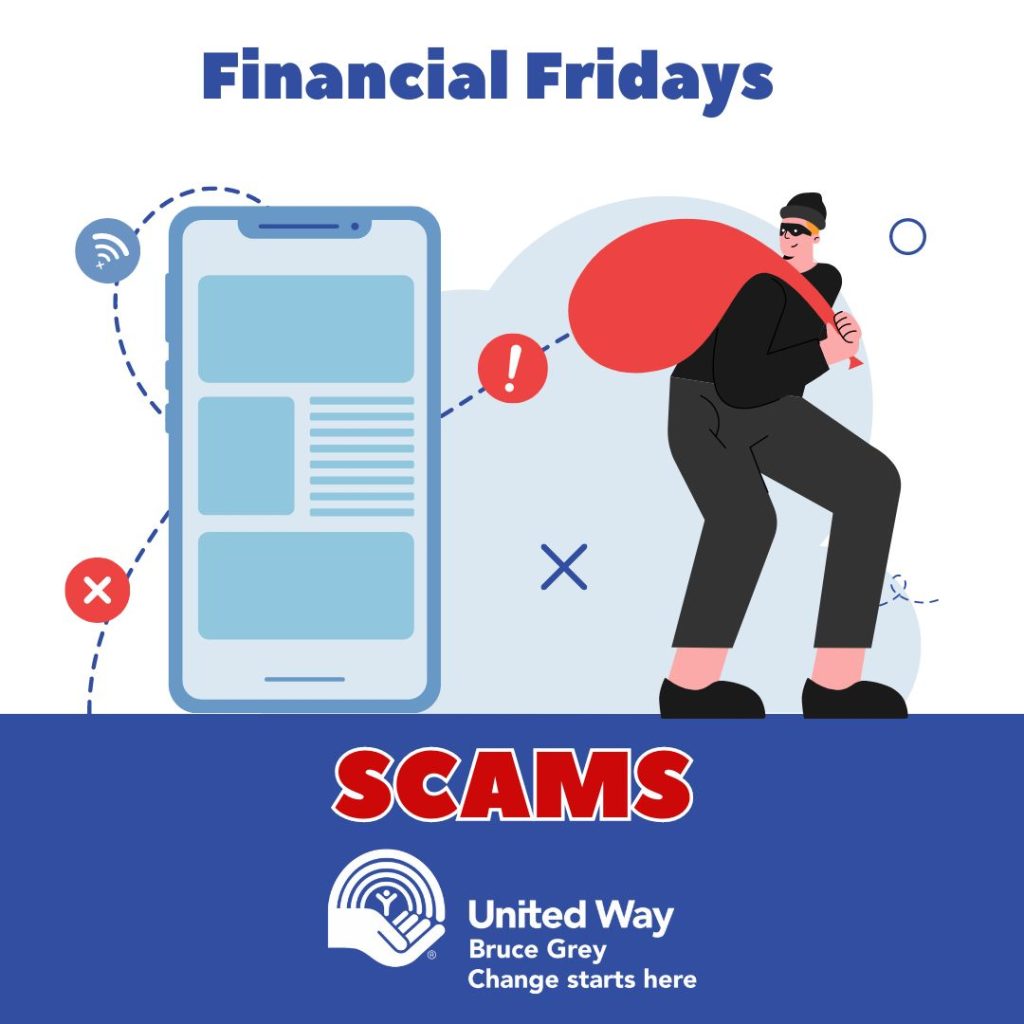#FinancialFridays: Scams

Scams can be sophisticated, professional, well-designed, and can mimic real-life scenarios. I have been scammed and I was shocked by how professionally it was done. I received an email that I thought had come from the minister at my church asking me to buy a certain type of gift card for a couple asking for help from my church. The email said the minister couldn’t get into town because of the recent snowstorm and it was urgent. I was honoured to be asked by my minister to do such an important and caring thing for people in need. I searched for the specified gift cards and went to three different stores looking for them. The email address was the same as my minister’s but with a slight, one letter difference; The email started with my name; The email talked about the recent snowstorm we had had; The email used details about my church; The email was written to make me feel important and useful. And, when I wrote back asking for more details, the person wrote back quickly emphasizing how important and urgent the need was. It was a sophisticated, professional, well-designed scam that mimicked a real-life scenario relevant to me.
38% of newcomers to Canada polled in Scotiabank’s 2024 Fraud Poll say they have been scammed in a fraud. This is compared to 17% of other Canadians saying they have been a victim of fraud.
Frauds targeting newcomers included:
- Social media scams (49%)
- Job scams (46%) and
- Immigration Scams (22%).
The top three most reported types of fraud were identity fraud, service fraud, and phishing. These types of fraud all attempt to get you to pay or give away sensitive information like your social insurance number (SIN), passwords, or banking details. Other types of fraud included investment scams, spear phishing, and romance scams.
Here are some questions to ask yourself:
- Did I ask for this call, email, letter, or communication? If it was an unsolicited communication, be skeptical.
- If this communication asking for some kind of payment or personal information?
Here are some things to keep in mind:
Check if the request is legitimate by looking at your online account or by calling or messaging the person, business, or organization claiming to call you. If you are getting a call from a delivery company; hang up and call the delivery company back on a phone number from their website or an official bill.
Look at your bank statements or online banking regularly to make sure the payments were made by you. This can help you catch fraud early.
Banks and other businesses are using multi-factor authentication. This may include sending you a one-time passcode. No one calling from a business or organization will ever ask you to share that passcode with them. If someone asks for the passcode to be shared verbally, be very skeptical. Hang up and call your branch or visit the branch directly.
If you become a victim of fraud, you can make a report to the Canadian Anti-Fraud Centre by phone at 1-888-495-8501 or online at https://www.canada.ca/en/revenue-agency/campaigns/fraud-scams.html.

